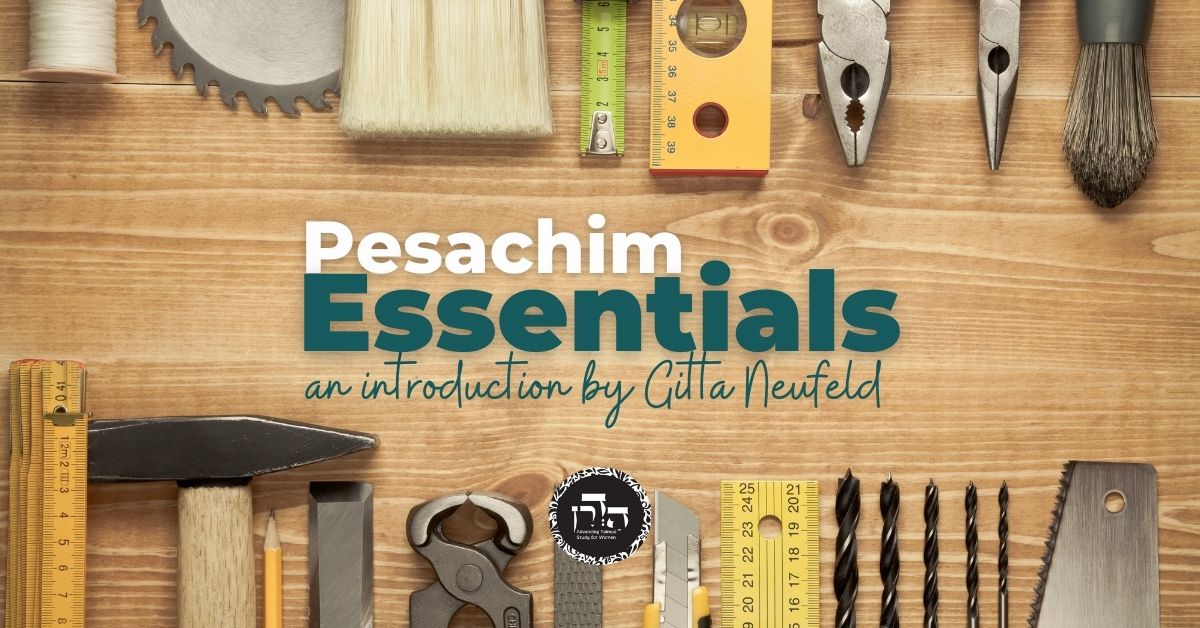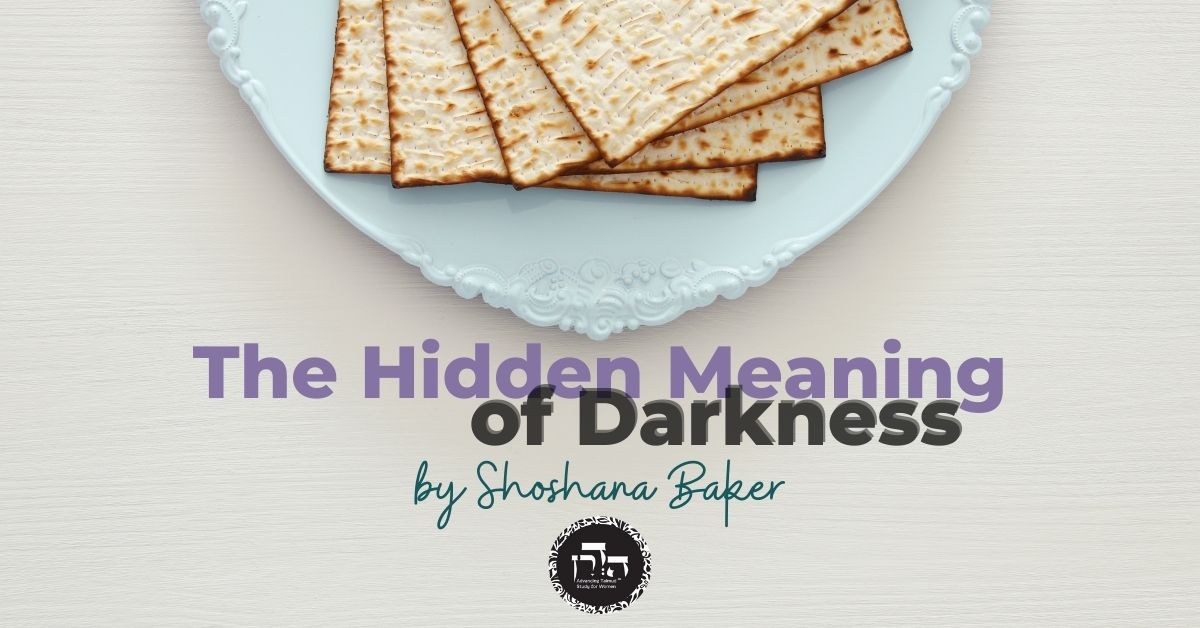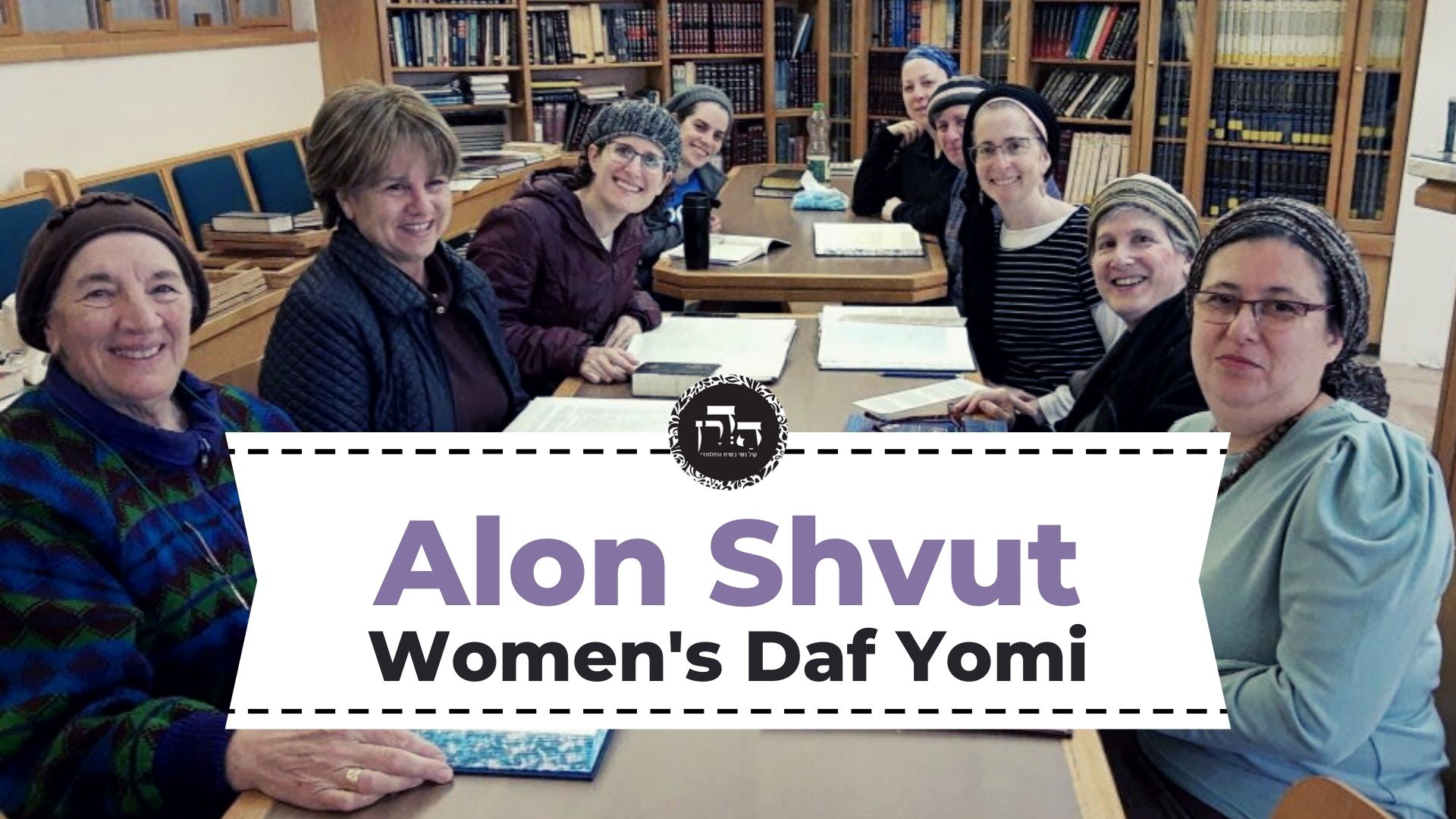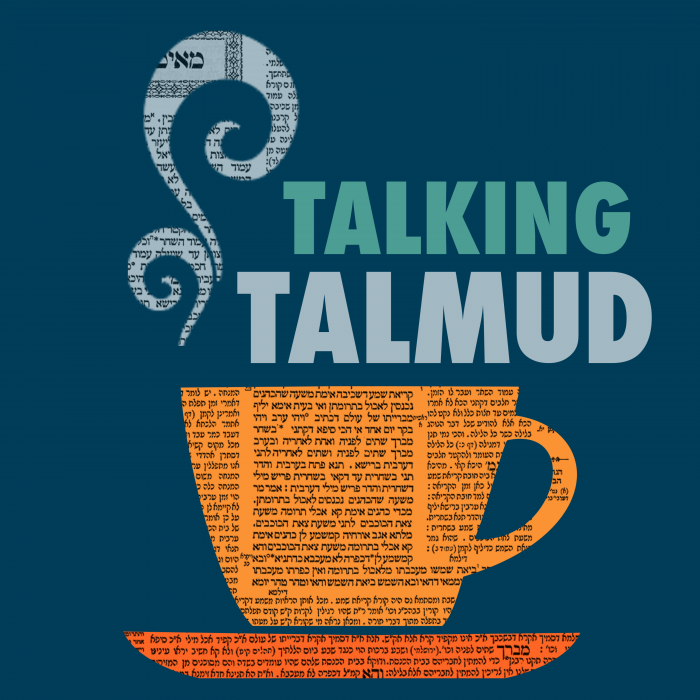Pesachim 2
מַתְנִי׳ אוֹר לְאַרְבָּעָה עָשָׂר בּוֹדְקִין אֶת הֶחָמֵץ לְאוֹר הַנֵּר. כׇּל מָקוֹם שֶׁאֵין מַכְנִיסִין בּוֹ חָמֵץ, אֵין צָרִיךְ בְּדִיקָה. וּבַמָּה אָמְרוּ ״שְׁתֵּי שׁוּרוֹת בַּמַּרְתֵּף״ — מָקוֹם שֶׁמַּכְנִיסִין בּוֹ חָמֵץ. בֵּית שַׁמַּאי אוֹמְרִים: שְׁתֵּי שׁוּרוֹת עַל פְּנֵי כׇּל הַמַּרְתֵּף, וּבֵית הִלֵּל אוֹמְרִים: שְׁתֵּי שׁוּרוֹת הַחִיצוֹנוֹת שֶׁהֵן הָעֶלְיוֹנוֹת.
MISHNA: On the evening [or] of the fourteenth of the month of Nisan, one searches for leavened bread in his home by candlelight. Any place into which one does not typically take leavened bread does not require a search, as it is unlikely that there is any leavened bread there. And with regard to what the Sages of previous generations meant when they said that one must search two rows of wine barrels in a cellar, i.e., a place into which one typically takes some leavened bread, the early tanna’im are in dispute. Beit Shammai say that this is referring to searching the first two rows across the entire cellar, and Beit Hillel say: There is no need to search that extensively, as it is sufficient to search the two external rows, which are the upper ones. This dispute will be explained and illustrated in the Gemara.
גְּמָ׳ מַאי ״אוֹר״? רַב הוּנָא אָמַר: נַגְהֵי, וְרַב יְהוּדָה אָמַר: לֵילֵי. קָא סָלְקָא דַּעְתָּךְ דְּמַאן דְּאָמַר נַגְהֵי — נַגְהֵי מַמָּשׁ, וּמַאן דְּאָמַר לֵילֵי — לֵילֵי מַמָּשׁ.
GEMARA: The Gemara asks: What is the meaning of the term or, translated as: The evening of? The Gemara provides two answers. Rav Huna said: It means light, and Rav Yehuda said: In this context, it means evening. At first glance, it could enter your mind to suggest that the one who said light means that one searches for leaven by the actual light of day, on the morning of the fourteenth of Nisan, and the one who said evening is referring to the actual evening of the fourteenth.
מֵיתִיבִי: ״הַבֹּקֶר אוֹר וְהָאֲנָשִׁים שֻׁלְּחוּ״ — אַלְמָא ״אוֹר״ יְמָמָא הוּא! מִי כְּתִיב ״הָאוֹר בֹּקֶר״? ״הַבֹּקֶר אוֹר״ כְּתִיב, כְּמַאן דְּאָמַר: צַפְרָא נְהַר, וְכִדְרַב יְהוּדָה אָמַר רַב. דְּאָמַר רַב יְהוּדָה אָמַר רַב: לְעוֹלָם יִכָּנֵס אָדָם בְּכִי טוֹב, וְיֵצֵא בְּכִי טוֹב.
To clarify the meaning of the word or, the Gemara analyzes biblical verses and rabbinic statements. The Gemara raises an objection from a verse: “As soon as the morning was or, the men were sent away, they and their donkeys” (Genesis 44:3). Apparently, or is day. The Gemara rejects this contention. Is it written: The light was morning? “The morning was light” is written. In this context, or is a verb not a noun, as the one who said: The morning lightened. And this is in accordance with that which Rav Yehuda said that Rav said, as Rav Yehuda said that Rav said: A person should always enter an unfamiliar city with “it is good” (Genesis 1:4), i.e., before sunset, while it is light, as the Torah uses the expression “it is good” with regard to light upon its creation. This goodness is manifest in the sense of security one feels when it is light. And likewise, when one leaves a city he should leave with “it is good,” meaning after sunrise the next morning.
מֵיתִיבִי: ״וּכְאוֹר בֹּקֶר יִזְרַח שָׁמֶשׁ״ — אַלְמָא ״אוֹר״ יְמָמָא הוּא! מִי כְּתִיב ״אוֹר בֹּקֶר״? ״וּכְאוֹר בֹּקֶר״ כְּתִיב, וְהָכִי קָאָמַר: וּכְאוֹר בֹּקֶר בָּעוֹלָם הַזֶּה, כְּעֵין זְרִיחַת שֶׁמֶשׁ לַצַּדִּיקִים לָעוֹלָם הַבָּא.
The Gemara raises an objection from another verse: “And as the light [or] of the morning, when the sun rises, a morning without clouds; when through clear shining after rain the tender grass springs out of the earth” (II Samuel 23:4). Apparently, or is day. The Gemara rejects this proof as well: Is it written that the light was morning? “As the light of the morning” is written, and this is what the verse is saying: And as brightly as the morning light of this world shines at its peak, so will be the rising of the sun for the righteous in the World-to-Come, as in those days the light of the sun will be seven times stronger than at present (see Isaiah 30:26).
מֵיתִיבִי: ״וַיִּקְרָא אֱלֹהִים לָאוֹר יוֹם״ — אַלְמָא ״אוֹר״ יְמָמָא הוּא! הָכִי קָאָמַר: לַמֵּאִיר וּבָא קְרָאוֹ יוֹם. אֶלָּא מֵעַתָּה, ״וְלַחֹשֶׁךְ קָרָא לָיְלָה״ — לַמַּחְשִׁיךְ וּבָא קָרָא לַיְלָה?! וְהָא קַיְימָא לַן דְּעַד צֵאת הַכּוֹכָבִים יְמָמָא הוּא!
The Gemara raises an objection: “And God called the or Day, and the darkness He called Night” (Genesis 1:5). Apparently, or is day. The Gemara rejects this proof as well. This is what the verse is saying: God called the advancing light Day. As stated previously, the word or can also be a verb; in this context, God called the beginning of that which eventually brightens, Day. The Gemara challenges this explanation: However, if that is so, the continuation of the verse, “and the darkness He called Night,” should be understood to mean: He called the advancing darkness Night, even before it is actually dark. However, this cannot be the correct interpretation of the verse, as we maintain it is day until the emergence of the stars. Since the stars emerge only after the sky begins to darken, the advancing evening cannot be defined as part of the night.
אֶלָּא, הָכִי קָאָמַר: קַרְיֵיהּ רַחֲמָנָא לִנְהוֹרָא וּפַקְּדֵיהּ אַמִּצְוְתָא דִימָמָא, וְקַרְיֵיהּ רַחֲמָנָא לַחֲשׁוֹכָא וּפַקְּדֵיהּ אַמִּצְוְתָא דְלֵילָה.
The Gemara rejects the previous explanation. Rather, this is what the verse is saying: God called the light to come and commanded it to perform the mitzva of the day, and God called the darkness and commanded it to perform the mitzva of the night. Called, in this context, does not connote the giving of a name. It means that He instructed the day and night to carry out their characteristic functions.
מֵיתִיבִי: ״הַלְלוּהוּ כׇּל כּוֹכְבֵי אוֹר״ — אַלְמָא ״אוֹר״ אוּרְתָּא הוּא. הָכִי קָאָמַר: הַלְלוּהוּ כׇּל כּוֹכָבִים הַמְּאִירִים. אֶלָּא מֵעַתָּה, כּוֹכָבִים הַמְּאִירִים הוּא דְּבָעוּ שַׁבּוֹחֵי, שֶׁאֵינָן מְאִירִין לָא בָּעוּ שַׁבּוֹחֵי?! וְהָא כְּתִיב: ״הַלְלוּהוּ כָּל צְבָאָיו״!
The Gemara raises an objection: “Praise Him, sun and moon; praise Him, all the stars of or” (Psalms 148:3). Apparently, or is the evening, as the stars of light appear at night. The Gemara rejects this contention. This is what the verse is saying: Praise Him, all the stars that radiate, as in this context or is not a noun but rather a verb that describes the activity of the stars. The Gemara challenges this explanation: However, if that is so, does the verse mean that it is the stars that radiate that are required to praise God, whereas those that do not radiate light are not required to praise Him? But isn’t it written in the previous verse: “Praise Him, all His legions,” indicating that all stars should praise God?
אֶלָּא הָא קָא מַשְׁמַע לַן — דְּאוֹר דְּכוֹכָבִים נָמֵי אוֹר הוּא. לְמַאי נָפְקָא מִינַּהּ? לְנוֹדֵר מִן הָאוֹר. (דִּתְנַן:) הַנּוֹדֵר מִן הָאוֹר — אָסוּר בְּאוֹרָן שֶׁל כּוֹכָבִים.
Rather, this phrase, the stars of light, comes to teach us that the light of stars is also considered light. The Gemara asks: What is the practical difference that emerges from the fact that the light of the stars is classified as light? The Gemara answers: It is significant with regard to one who vows that he will derive no benefit from light. It is necessary to define precisely what is included in the term light. As we learned in a mishna: For one who vows that he will derive no benefit from light, it is prohibited to benefit even from the light of the stars.
מֵיתִיבִי: ״לָאוֹר יָקוּם רוֹצֵחַ יִקְטׇל עָנִי וְאֶבְיוֹן וּבַלַּיְלָה יְהִי כַגַּנָּב״,
The Gemara raises an objection: “A murderer rises with the or to kill the poor and needy; and in the night he is as a thief” (Job 24:14).
הָא מִדְּקָאָמַר ״וּבַלַּיְלָה יְהִי כַגַּנָּב״ — אַלְמָא ״אוֹר״ יְמָמָא הוּא! הָתָם הָכִי קָאָמַר: אִי פְּשִׁיטָא לָךְ מִילְּתָא כִּנְהוֹרָא דְּאַנְּפָשׁוֹת קָאָתֵי — רוֹצֵחַ הוּא, וְנִיתָּן לְהַצִּילוֹ בְּנַפְשׁוֹ. וְאִי מְסַפְּקָא לָךְ מִילְּתָא כְּלֵילְיָא — יְהִי בְּעֵינֶיךָ כְּגַנָּב, וְלֹא נִיתָּן לְהַצִּילוֹ בְּנַפְשׁוֹ.
From the fact that the end of the verse states: “And in the night he is as a thief,” apparently the word or at the beginning of the verse is a reference to day, as the verse contrasts between night and or. The Gemara rejects this contention. There, this is what the verse is saying: If the matter is as clear to you as light, that the thief has come into the house prepared to take a life, he is a murderer; and the owner of the house may save himself by taking the life of the intruder. In that case, one may protect himself from a thief who breaks into his house, even by killing the intruder if necessary. And if the matter is as unclear to you as the night, he should be nothing more than a thief in your eyes and not a murderer; and therefore one may not save himself by taking the life of the thief. This verse is not referring to actual day and night; rather, it uses these terms as metaphors for certainty and uncertainty.
מֵיתִיבִי: ״יֶחְשְׁכוּ כּוֹכְבֵי נִשְׁפּוֹ יְקַו לְאוֹר וָאַיִן וְאַל יִרְאֶה בְּעַפְעַפֵּי שָׁחַר״, מִדְּקָאָמַר ״יְקַו לְאוֹר וָאַיִן״ אַלְמָא ״אוֹר״ יְמָמָא הוּא! הָתָם מֵילָט הוּא דְּקָא לָיֵיט לֵיהּ אִיּוֹב לְמַזָּלֵיהּ, אָמַר: יְהֵא רַעֲוָא דְּלִיצְפֵּיהּ הָךְ גַּבְרָא לִנְהוֹרָא, וְלָא לַישְׁכְּחֵיהּ.
The Gemara raises an objection to the opinion that or means evening: “Let the stars of the twilight be dark; let it look for or but have none; neither let it see the eyelids of the morning” (Job 3:9). From the fact that the verse states: “Let it look for or but have none,” apparently or is day. The Gemara rejects this contention. Actually, it is possible that or, in this context, means light in general, not specifically day. There, Job is cursing his fortune. He said: Let it be His will that this man, referring to himself, will seek light and not find it.
מֵיתִיבִי: ״וָאוֹמַר אַךְ חֹשֶׁךְ יְשׁוּפֵנִי וְלַיְלָה אוֹר בַּעֲדֵנִי״, אַלְמָא ״אוֹר״ יְמָמָא הוּא! הָתָם, הָכִי קָאָמַר דָּוִד: אֲנִי אָמַרְתִּי אַךְ חֹשֶׁךְ יְשׁוּפֵנִי לָעוֹלָם הַבָּא שֶׁהוּא דּוֹמֶה לְיוֹם, עַכְשָׁיו, הָעוֹלָם הַזֶּה שֶׁהוּא דּוֹמֶה לְלַיְלָה — אוֹר בַּעֲדֵנִי.
The Gemara raises an objection: “And I say, yet the darkness shall envelop me, and the or about me shall be night” (Psalms 139:11). Apparently, or is day. The Gemara rejects this proof. This is what David is saying there: I said after I sinned that darkness shall envelop me in the World-to-Come, which is like day. Now that I know that I have been forgiven, even this world, which is like darkness, is light for me. That being the case, it cannot be derived from here that the word or describes the day.
מֵיתִיבִי, רַבִּי יְהוּדָה אוֹמֵר: בּוֹדְקִין אוֹר (לְאַרְבָּעָה) עָשָׂר וּבְאַרְבָּעָה עָשָׂר שַׁחֲרִית וּבִשְׁעַת הַבִּיעוּר. מִדְּקָאָמַר רַבִּי יְהוּדָה: בּוֹדְקִין אוֹר אַרְבָּעָה עָשָׂר וּבְאַרְבָּעָה עָשָׂר שַׁחֲרִית, אַלְמָא ״אוֹר״ אוּרְתָּא הוּא. שְׁמַע מִינַּהּ.
The Gemara raises an objection from a mishna. Rabbi Yehuda says: One searches on or of the fourteenth of Nisan, on the fourteenth in the morning, and at the time of the removal of leavened bread. The Gemara infers from Rabbi Yehuda’s teaching: From the fact that Rabbi Yehuda says that one searches on or of the fourteenth and on the fourteenth in the morning, apparently or is the evening. In the order of Rabbi Yehuda’s list, or of the fourteenth precedes the morning of the fourteenth. Therefore, or must be referring to the evening. The Gemara concludes: Indeed, learn from it that this is the case.
מֵיתִיבִי: מֵאֵימָתַי אַרְבָּעָה עָשָׂר אָסוּר בַּעֲשִׂיַּית מְלָאכָה? רַבִּי אֱלִיעֶזֶר בֶּן יַעֲקֹב אוֹמֵר: מִשְּׁעַת הָאוֹר, רַבִּי יְהוּדָה אוֹמֵר: מִשְּׁעַת הָנֵץ הַחַמָּה.
The Gemara raises an objection from a different source: From when on the fourteenth of Nisan is it prohibited to perform labor, for those who are accustomed not to work on Passover eve? Rabbi Eliezer ben Ya’akov says: From the time of or. Rabbi Yehuda says: From sunrise.
אֲמַר לֵיהּ רַבִּי אֱלִיעֶזֶר בֶּן יַעֲקֹב לְרַבִּי יְהוּדָה: וְכִי הֵיכָן מָצִינוּ יוֹם שֶׁמִּקְצָתוֹ אָסוּר בַּעֲשִׂיַּית מְלָאכָה וּמִקְצָתוֹ מוּתָּר בַּעֲשִׂיַּית מְלָאכָה? אֲמַר לֵיהּ: הוּא עַצְמוֹ יוֹכִיחַ, שֶׁמִּקְצָתוֹ מוּתָּר בַּאֲכִילַת חָמֵץ וּמִקְצָתוֹ אָסוּר בַּאֲכִילַת חָמֵץ.
Rabbi Eliezer ben Ya’akov said to Rabbi Yehuda: And where have we found precedent for a day, in part of which the performance of labor is prohibited, and in another part of which the performance of labor is permitted? If, as you claim, the prohibition against performing labor takes effect only from sunrise, whereas the fourteenth of Nisan begins with the emergence of stars the previous evening, it is permitted to perform labor during the first part of the fourteenth, while during the second part of the same day labor is prohibited. He said to him: The fourteenth day itself can prove to be a precedent, as in part of it, from the beginning until the sixth hour of the day, the eating of leavened bread is permitted, and during another part of it the eating of leavened bread is prohibited.
מִדְּקָאָמַר רַבִּי יְהוּדָה מִשְּׁעַת הָנֵץ הַחַמָּה, אַלְמָא ״אוֹר״ דְּקָאָמַר רַבִּי אֱלִיעֶזֶר בֶּן יַעֲקֹב — אוּרְתָּא הוּא! לָא, מַאי ״אוֹר״ — עַמּוּד הַשַּׁחַר.
With regard to the matter under discussion, the Gemara infers: From the fact that Rabbi Yehuda says that it is prohibited to perform labor from sunrise, apparently the word or that Rabbi Eliezer ben Ya’akov is saying, is referring to the evening. This is an additional proof that or means night. The Gemara rejects this contention: No, this is not a proof. What is meant by or? It means dawn. The dispute of the tanna’im is not whether the prohibition of labor begins at night or in the morning. Rather, they disagree as to whether labor is prohibited from dawn or only from sunrise.
אִי הָכִי, דְּקָאָמַר לֵיהּ: הֵיכָן מָצִינוּ יוֹם שֶׁמִּקְצָתוֹ מוּתָּר בַּעֲשִׂיַּית מְלָאכָה וּמִקְצָתוֹ אָסוּר בַּעֲשִׂיַּית מְלָאכָה, נֵימָא אִיהוּ לְנַפְשֵׁיהּ: הָא אִיכָּא לַיְלָה, דְּקָא שָׁרֵי רַבִּי אֱלִיעֶזֶר בֶּן יַעֲקֹב!
The Gemara challenges this assumption: If so, consider that which Rabbi Eliezer ben Ya’akov said to Rabbi Yehuda: Where have we found precedent for a day, in part of which the performance of labor is prohibited, and in another part of which the performance of labor is permitted? Let him say to himself: Isn’t there the night, during which even Rabbi Eliezer ben Ya’akov himself permits performance of labor at night? He certainly would not raise a difficulty against the opinion of Rabbi Yehuda, which is equally difficult according to his own opinion.
הָכִי קָאָמַר: בִּשְׁלָמָא לְדִידִי, אַשְׁכַּחְנָא דְּקָא פָּלְגִי רַבָּנַן בֵּין יְמָמָא לְלֵילְיָא. (דִּתְנַן) גַּבֵּי תַּעֲנִית צִבּוּר: עַד מָתַי אוֹכֵל וְשׁוֹתֶה — עַד שֶׁיַּעֲלֶה עַמּוּד הַשַּׁחַר, דִּבְרֵי רַבִּי אֱלִיעֶזֶר בֶּן יַעֲקֹב. רַבִּי שִׁמְעוֹן אוֹמֵר: עַד קְרוֹת הַגֶּבֶר. אֶלָּא לְדִידָךְ, הֵיכָא אַשְׁכַּחְנָא יְמָמָא גּוּפֵיהּ דְּפָלְגִי בֵּיהּ רַבָּנַן!
The Gemara rejects this contention. This is what Rabbi Eliezer ben Ya’akov is saying: Granted, according to my opinion, I find situations in which the Sages distinguished between the day and the preceding night, as we learned in a mishna with regard to a lenient communal fast: Until when may one eat and drink before the fast? It is permitted to eat and drink until dawn; this is the statement of Rabbi Eliezer ben Ya’akov. Rabbi Shimon says: One may eat until the call of the rooster, which precedes dawn. In that case, the Sages distinguished between day and night. However, according to your opinion, where do we find a halakha with regard to which the Sages divided the day itself?
אֲמַר לֵיהּ: הוּא עַצְמוֹ יוֹכִיחַ, שֶׁמִּקְצָתוֹ מוּתָּר בַּאֲכִילַת חָמֵץ וּמִקְצָתוֹ אָסוּר בַּאֲכִילַת חָמֵץ. שַׁפִּיר קָאָמַר לֵיהּ רַבִּי יְהוּדָה לְרַבִּי אֱלִיעֶזֶר? הָכִי קָאָמַר לֵיהּ רַבִּי אֱלִיעֶזֶר: אָמֵינָא לָךְ אֲנָא מְלָאכָה דְּרַבָּנַן וְאַתְּ אָמְרַתְּ לִי חָמֵץ דְּאוֹרָיְיתָא?! דְּעַד הָכָא אֲסַר רַחֲמָנָא, וְעַד הָכָא שְׁרָא רַחֲמָנָא.
Rabbi Yehuda said to Rabbi Eliezer ben Ya’akov: The day of the fourteenth itself can prove my opinion, as during part of it, the eating of leavened bread is permitted, and during part of it the eating of leavened bread is prohibited. The Gemara comments: Rabbi Yehuda has spoken well to Rabbi Eliezer; how can Rabbi Eliezer ben Ya’akov counter this contention? The Gemara answers that this is what Rabbi Eliezer is saying to him in response: I said to you the prohibition of labor, which is by rabbinic law, and you said to me the prohibition of leavened bread, which is by Torah law. With regard to a Torah prohibition, it is possible that until this point, God prohibited doing so, and until that point, God permitted doing so, as the halakha is determined by a Torah decree. On the other hand, rabbinic prohibitions are enacted within clearly defined categories; in this case, an entire day.
וְאִידַּךְ? שָׁעוֹת דְּרַבָּנַן.
The Gemara asks: And what is the response of the other Sage, Rabbi Yehuda, to this contention? The Gemara answers: Rabbi Yehuda notes that the hours when the prohibition of leaven is in effect on the morning of the fourteenth are determined by rabbinic law. Despite the fact it is prohibited by Torah law to eat leaven from midday, the distinction within the morning hours between the time when one may consume leaven and the time when one may derive benefit from leaven but not consume it is determined by the Sages. Apparently, the Sages institute ordinances that apply to part of a day.
וְאִידַּךְ? הַרְחָקָה הוּא דַּעֲבוּד רַבָּנַן לִדְאוֹרָיְיתָא.
The Gemara asks: And how can the other Sage, Rabbi Eliezer ben Ya’akov, respond to this claim? The Gemara answers: Rabbi Eliezer ben Ya’akov would say that in this case the Sages established a preventive measure for a Torah law, and decrees of this type are at times in effect for only part of the day. By contrast, when the Sages instituted independent ordinances, they invariably did so for the entire day. In any case, this source does not conclusively prove that or means evening.
מֵיתִיבִי: אֵין מַשִּׂיאִין מַשּׂוּאוֹת אֶלָּא עַל הַחֹדֶשׁ שֶׁנִּרְאָה בִּזְמַנּוֹ, לְקַדְּשׁוֹ. וְאֵימָתַי מַשִּׂיאִין מַשּׂוּאוֹת — לְאוֹר עִבּוּרוֹ. אַלְמָא ״אוֹר״ אוּרְתָּא הוּא! שְׁמַע מִינַּהּ.
The Gemara raises an objection: The court messengers kindle torches on the mountaintops as a signal that the court has sanctified and established a new month only for a month that appeared at its proper time, on the thirtieth day of the previous month, to sanctify it on that day. And when do the messengers kindle these torches? They light them on or of its additional day, at the end of the thirtieth day from the beginning of the previous month, leading into the evening of the thirty-first day. The thirtieth day is called the additional day because it is sometimes appended to the previous month, which would otherwise consist of twenty-nine days. Apparently, or is the evening, as the court messengers would certainly not light the bonfires by day. The Gemara concludes: Indeed, learn from it that this is the case.
מֵיתִיבִי: הָיָה עוֹמֵד כׇּל הַלַּיְלָה וּמַקְרִיב עַל הַמִּזְבֵּחַ, לָאוֹרָה טָעוּן קִידּוּשׁ יָדַיִם וְרַגְלַיִם, דִּבְרֵי רַבִּי. ״אוֹרָה״ שָׁאנֵי.
The Gemara raises an objection: If a priest was standing all night and sacrificing the limbs of offerings on the altar, in the ora he is required to sanctify his hands and feet again, by washing them in water from the basin; this is the statement of Rabbi Yehuda HaNasi. Since a new day has begun, the priest must wash his hands and feet from the basin, a prerequisite for each day’s service. With regard to the issue under discussion, apparently or means day. The Gemara rejects this contention: This is not a conclusive proof, as ora is different, and indeed it is referring to the day. However, the word or may yet refer to the evening.
מֵיתִיבִי מָר זוּטְרָא:
Mar Zutra raises an objection


























